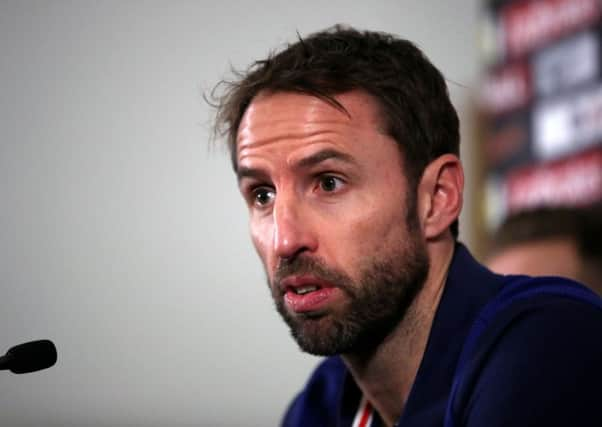Gareth Southgate has already earned England's top job


When he assumed temporary command Southgate was probably not expecting an invitation to contribute to the nature versus nurture debate – are captain’s made or born? Or to be led into the moral maze to distinguish between codes of conduct – arrogance or confidence?
He had a cogent answer to both riddles, as he did in the political dimension articulating his position on the poppy, indicating a depth and quality of reasoning that is rare in this parish. For what it is worth, captains are in his view forged in the crucible of experience and confidence is valued above arrogance as the optimal attitude to strike.
Advertisement
Hide AdAdvertisement
Hide AdWhether all this makes him the right man to lead England full time is a moot point, but if intelligence is part of the job description there can’t be many candidates with more of the right stuff. And if the testimony of Adam Lallana is broadly representative, the players are already smitten with the Southgate regime.
He is perhaps fortunate to find himself in charge of an England match at Wembley tonight that re-engages interest in the team. Once seen as irrelevant in the configuration of the modern game, a fixture with Scotland has acquired a new resonance. For once outside of a major championship people care about the outcome.
This sense of heightened connectivity has thrust Southgate into the forefront of the football conversation, and thus far he has barely put a foot wrong. His preparations for the game have included measures to foster in a group not familiar with the history of the fixture a sense of meaning and tradition which he hopes will strengthen conviction and enable them to take ownership of the England vehicle.
In the short time he has spent with the group, he has divined areas that need improvement and ways in which that might be achieved. Of course, there have been enough voices offering a view on this, too. Graeme Souness, pictured, ventured in the Sunday Times that this was arguably the poorest ensemble in the history of football’s oldest international fixture.
“Well, I am not going to pick a fight with Graeme,” he said. “Again, I think sometimes there’s rose-tinted spectacles about teams that have been put out by both countries over the years.
“We forget some of the turkeys, don’t we?”
Good answer, Gareth. The architect of Iceland’s momentous victory over England at the Euros, Swedish coach Lars Lagerback, claimed Roy Hodgson’s team were over-rated, passive in the extreme, lacked ideas and significantly, leaders on the pitch. He didn’t have to dig deep into the coaching manual to trigger the unravelling; a long throw was all it took.
These are more exacting criticisms to detoxify but this is the landscape Southgate inherited and one that in tonight’s match against Scotland he gets to lay out some answers. I would argue he has already demonstrated attributes that deserve greater exposure to the role. Others, not doubt, will see defeat as evidence that he is not up to it.
No wonder he has steered the pre-match thread away from his prospects of landing the job full-time, something every fibre in his being suggests he would devour.
Advertisement
Hide AdAdvertisement
Hide Ad“You can’t force what is going to happen in the future,” he said. “You have to concentrate on being as good as you can in the role you are in.
“When I was a player I felt the time was right to leave Aston Villa. It didn’t happen for whatever reason, I took a different path by going to Middlesbrough with Steve McClaren. That was fulfilling in a different way, winning the first trophy in their history.
“If you had offered me that some years earlier I would have said no I want to go that route and win the league with somebody.
“That was an incredible experience and playing in a European final was remarkable and led to me being the manager there. Maybe I’m a Buddhist in some way. You can’t force what the pathway is. I’m very conscious of doing the best you can and the opportunities arise. If I hadn’t been doing well with the under-21s then this opportunity would not have arisen.
“I want to look back on these four matches and say ‘you know what – we prepared the team very well, we don’t have any regrets, we created an environment that was vibrant and exciting, started to form a culture that they think they can perform at their best’.”